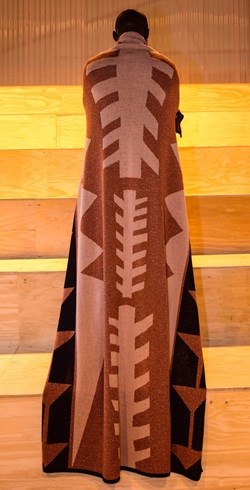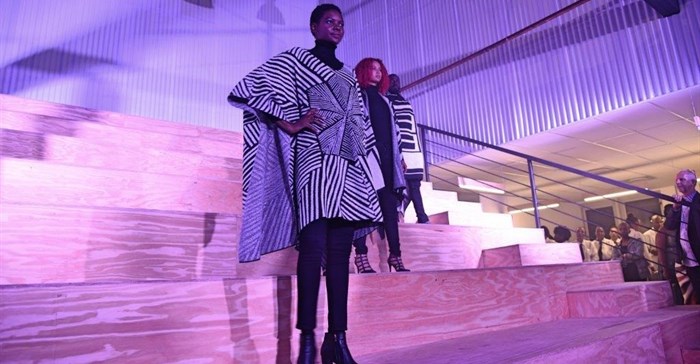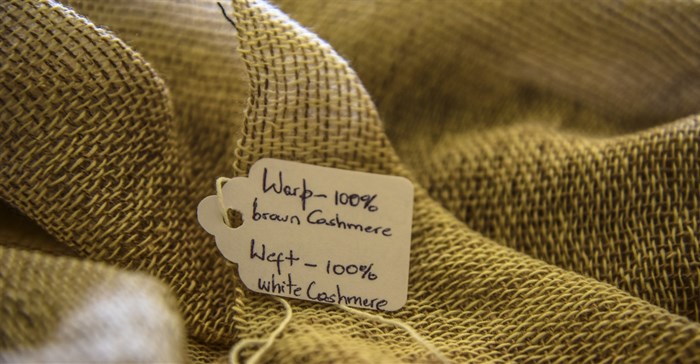
Top stories






More news


Marketing & Media
Ads are coming to AI. Does that really have to be such a bad thing?














Eco dyes from natural sources, such as leaves, fruits, bark and flowers have been used to create the collection’s palette of warm, earthy tones. These include ochre, bone, nut, marula, wild peach and pitch. The Dedani Collection’s indigenous luxury fabrics range from hand spun and woven to hand knitted or machine-made, and are printed according to three design themes.
• Under the Clan theme, the main designs are Totem, an abstract presentation of natural objects and animals that reference spiritual ancestral connections and Tyali, celebrating the Xhosa Makoti or bride and the fertility of the clan.
• The Earth theme combines references to the dichotomy of drought (Mbalela) and waterfalls (Amanzi), evoking the farmer’s reality and climate change.
• The Ethnic theme evokes and celebrates humanity’s common heritage through its interweaving geometrics and the cultural fusion of Ndebele and Xhosa traditional designs.
Ivili Loboya, meaning ‘Wheel of Wool’, is a natural fibre (wool & cashmere) beneficiation enterprise, for woven and non-woven textile products, based at Ibika, near Butterworth in the rural Eastern Cape.
“Dedani means ‘Get out of the way!’ because we intend to revive South Africa’s textile industry through local natural resources and create a niche for ourselves in the global luxury fabric market,” says Ivili Loboya owner, Dr Vuyo Mahlati.
“We see a great future for our pioneering fabrics, as our research shows that Africa’s growing middle class is discerning in its fabric choices, looking for natural fibres where possible. There has been significant pre-launch interest, both nationally and internationally.”

The initiative also has considerable support from textile, industrial and policy sectors. Minister Jeff Radebe gave a launch address on 23 February, attended by well-known designers such as Marianne Fassler, Laduma and others. The following day Minister Lindiwe Zulu responded to a South African designers’ roundtable, hosted by Brand SA Chairperson Khanyisile Kweyama and featuring Fred Eboka and Interior Décor Designers.
“Compared to wools, the soft handle and light weight of cashmere combined with its durability and wonderful warmth make it a beautiful fabric to work with,” says Eboka. “It is wonderful to be able to source such luxurious quality locally so we can keep our ranges Proudly South African.”
Cashmere is made from the soft, fine inner hair of the goat’s coat. Originally, the term was applied only to goat hair from the Kashmir region of the Indian subcontinent but usage has since broadened to all goat hair that is similarly fine and soft. Cashmere is in great demand for luxury fabrics from suiting to upholstery.
At its vertically integrated wool-processing hub, Ivili Loboya offers wool-sorting and scouring, fibre manufacturing and hand spun yarns. It also supplies insulation and inner soles for safety shoes. Fibres are sourced from small farmers, many of them women. It has trained employees in spinning, weaving and knitting as well as machine production. Senior staff and management are mainly young people with bachelor’s and master’s degrees in subjects such as textiles and engineering who are keen to live and work in their home region rather than migrate.

The company collaborates with the agricultural colleges and the Materials Science and Manufacturing Unit of the CSIR, among others. Dr Mahlati’s doctorate from the University of Stellenbosch focused on commercialisation and mainstreaming of rural economies through value chains. She also has experience at the retail end of fashion, having owned a designer boutique.
“We hope to contribute to reviving the textile industry before institutional knowledge and skills disappear with the generations. Our fabrics are environmentally friendly, sustainable and versatile and we believe that Africa and the world will welcome them for use in high-end fashion design and home furnishings,” concludes Dr Mahlati.